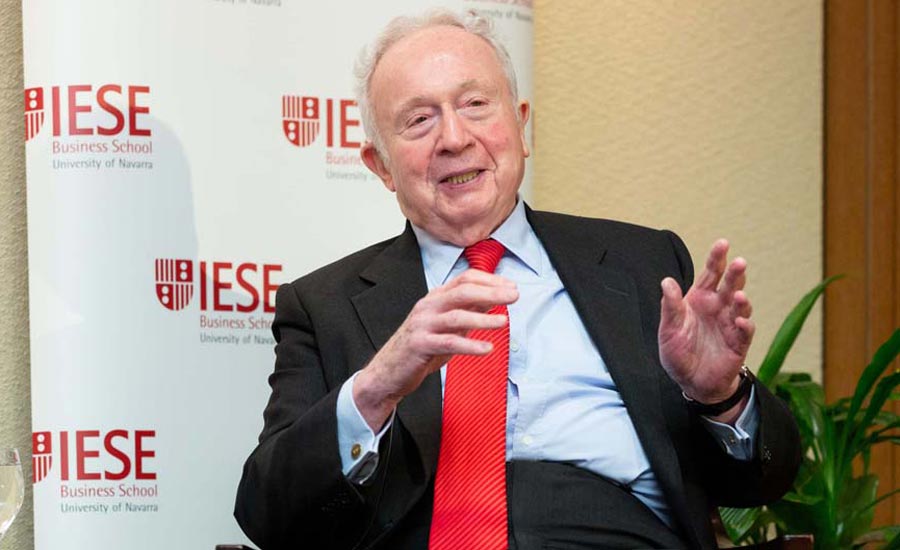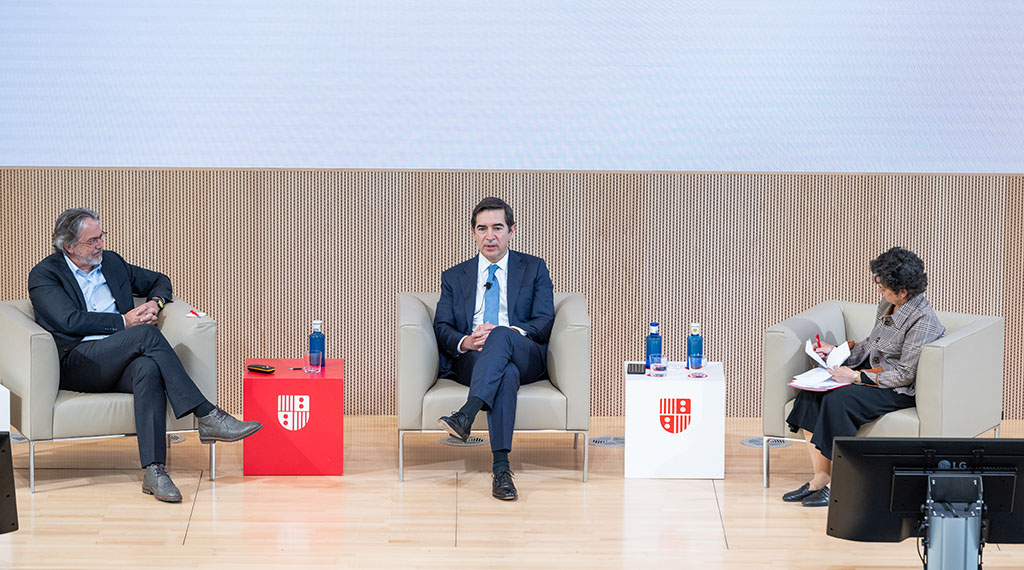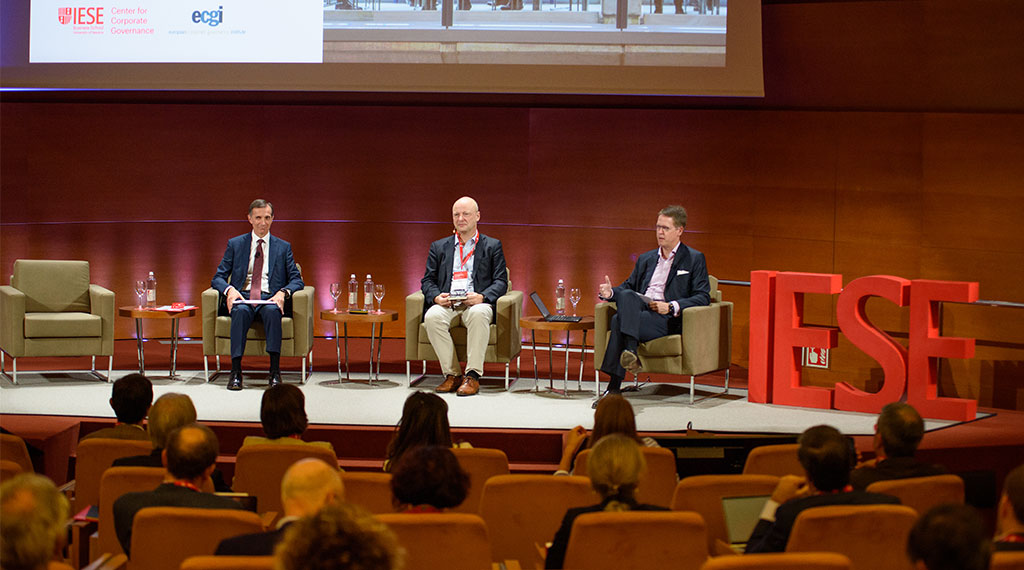Stories
Creating better boards of directors
Martin Lipton, leading corporate governance expert, speaks at IESE's New York campus
April 18, 2019

What is the function of a company today, and what is the subsequent role of the board of directors?
Martin Lipton, a renowned expert in corporate governance, sat down with IESE Professor Jordi Canals at the school’s New York campus recently to explore these interlinked questions.
Lipton is a founding partner of law firm Wachtell, Lipton, Rosen & Katz, and has written seminal articles, books and legal frameworks on topics spanning corporate takeovers to shareholder rights.
In 2016, the World Economic Forum sponsored his publication The New Paradigm: A Roadmap for an Implicit Corporate Governance Partnership Between Corporations and Investors to Achieve Sustainable Long-Term Investment and Growth. He describes it as “a sort of compendium on the duties of putting shareholders and asset managers in stewardship of a company.”
2008 marks a turning point
Lipton approaches the question of the duty of the board by asking what the purpose of a company is. He says that the focus for years was disproportionally on shareholders as opposed to all stakeholders.
He makes a major distinction between how, in the late 20th century, companies were under pressure “to maximize stakeholder wealth” and promote shareholder governance. When the 2008 crisis hit, “the obsession with short-term profits had backfired.”
Lipton suggests that 2008 was a turning point, with companies redefining their purpose beyond making a product and satisfying shareholders. Companies became obliged to consider long-term aspects such as “the proper compensation of employees, employees’ retirement plans, the quality of their product, and the support they lend to a whole network of institutions so that their company is well situated in society.”
Companies today still grapple with the problem of short-termism, Lipton stresses. Canals points out that to this challenge, myriad others can be added: understanding the complexity of consumers, management challenges provoked largely by digital disruption, new geopolitical risks and engaging today’s generation of millennial employees.
Bigger, sophisticated boards needed
Lipton believes that today’s boards need to be diverse in terms of ethnicity and gender and, in the case of major companies, comprise 12–15 members. This, he acknowledges, contradicts the typical business-school model of eight.
“Today we are no longer an industrial society, we are a knowledge society,” Lipton says. “It’s the Googles and the Apples and the Microsofts and the Ubers who are the big players and companies like these need sophisticated boards.”
Facebook, he said, learned this lesson the hard way: “No one asked the right questions for years as to the societal impact of the expansion of the advertising and communication activities that Facebook adopted. It was enormously profitable but there was nobody on the board saying ‘What are we doing?’ and ‘What is the impact of this going to be?’”
One reason boards benefit from being bigger is dealing with issues such as R&D and marketing which, according to Lipton, should be no afterthought. If they are, it may come back to haunt the company.
“When a company trends down it’s often because it has failed to keep up this investment,” Lipton remarks.
Concluding on this topic Lipton said, “Even if you have a smart, dedicated board — people who are acting like PE people — if they don’t have the compass, if they aren’t on the right road, then you’re going to get a failure.”
Choosing battles with activists
A recurring theme during the conversation was the importance of independent advice, given today’s focus on governance issues raised by shareholder activists.
Lipton said that one of the activists’ common attacks was “a stale board,” in other words no turnover, or no new director for over Lipton’s acceptable maximum of 5-6 years. Often, Lipton says, the best approach is to reach agreement with activists by “putting one or two mutually agreeable new directors” on the board.
He added: “People think that if there is an activist you have to fight tooth and nail to defeat it, and sometimes you do, but at least half the time it makes sense to work something out.”


